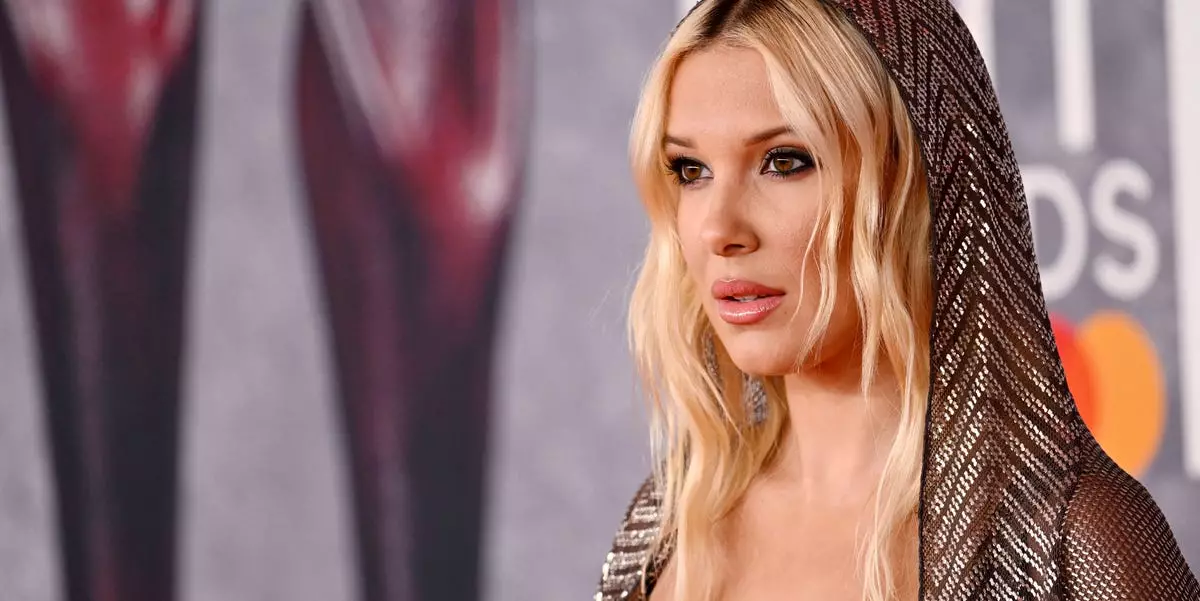Millie Bobby Brown has enchanted audiences since she first appeared as Eleven on Netflix’s “Stranger Things.” The young actress, now 21, recently opened up about a surprising revelation: her real name is Millie Bonnie Brown. This disclosure, made during a casual interview with Chris Pratt, not only highlights the playful nature of her celebrity persona but also demonstrates the often-overlooked complexities of identity in the entertainment industry. Choosing to adopt a stage name like “Bobby” for fun showcases her lighthearted approach to stardom, yet it also raises questions about how individuals in the public eye navigate their personal identities while satisfying audience expectations.
Facing Criticism with Bold Resilience
The pressures of fame weigh heavily, especially for young women in Hollywood, and Brown has faced her share of scrutiny. A recent instance ignited a firestorm of chatter when she showcased her new blonde hair. Instead of retreating into silence, Brown used the opportunity to assert her voice, addressing the criticism candidly on Instagram. In her powerful statement, she illuminated a troubling trend in celebrity culture—the stark contrast between public adoration and harsh judgment.
Brown’s declaration that she refuses to be “frozen in time” serves as a bold reminder that growth—both personal and professional—is a natural part of life. For those who have followed her journey, it is evident that she has evolved far beyond her role as a child star. Her conviction in the face of adversity mirrors a more collective struggle among women in various spheres, who often grapple with the dichotomy of societal expectations and the desire for self-authenticity.
The Tenacity to Resist Societal Norms
Brown’s critique of the media’s predilection to dissect young women’s appearances reveals a deeper conversation about societal norms and the insidious nature of bullying disguised as journalism. Her comments are a rallying cry against the misguided belief that feminine appearance should be subject to scrutiny and evaluation. The discomfort expressed by those who lash out at women asserting their identity often stems from insecurities within themselves—an uncomfortable truth that she poignantly confronts.
By shedding light on the bizarre reality that a young actress’s growth can be weaponized against her, Brown not only calls out her critics but also invites broader reflection on how society treats individuals, especially women, as they navigate their own paths to adulthood. This shift in perspective is empowering for her followers and the broader audience that resonates with her message.
A Call for Empathy and Support Among Women
What is perhaps most striking about Brown’s stance is her bold call for collective solidarity among women. In her statement regarding the scrutiny she faces from some female writers, she exposes the hypocrisy that can exist within purportedly supportive communities. Instead of offering support, many fall into the trap of criticism, perpetuating cycles of negativity that only serve to harm and divide.
Brown’s declaration is not merely a defense of herself; it’s an urgent plea for all women to choose upliftment over judgment. The idea that women should support one another in their journeys is not just a lofty ideal but an essential component of fostering an inclusive and compassionate society. Her call to action is a reminder to challenge the default inclination to critique and instead choose to empower, understand, and celebrate one another’s individuality.
Redefining Celebrity Culture
As Millie Bobby Brown continues to navigate her trajectory in the limelight, she represents a new generation of celebrities determined to redefine the conversation surrounding fame. Her willingness to embrace authenticity and challenge societal norms commands respect and admiration. It invites a dialogue that champions vulnerability, growth, and support, rather than perpetuating outdated ideals of perfection and critique.
The evolution of Brown’s public persona is an inspiring testament to the power of voice, resilience, and the transformative potential of choosing positivity in the face of negativity. As she encourages both her peers and the public to reconsider how they evaluate women in the spotlight, the overarching message is clear: it’s time to forge a new path—one marked not by scrutiny but by understanding, compassion, and solidarity.

